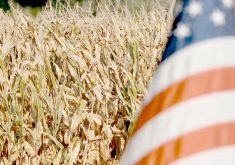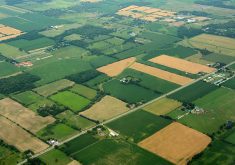Canadian cattle producers might not be happy about mandatory traceability, but they say if they’re going to have to comply, it might as well be done right.
Producers at the recent Canadian Cattlemen’s Association semi-annual meeting in Regina said the system must be carefully monitored.
Vice-president Travis Toews said there is “an abundance of opportunity to screw things up, even in diligent operations.”
The integrity of the Canadian beef system is at stake, he added, from lost ear tags to obviously older cattle being identified as young.
Read Also

Government, industry seek canola tariff resolution
Governments and industry continue to discuss how best to deal with Chinese tariffs on Canadian agricultural products, particularly canola.
“We need a robust audit system or this thing will hang us,” he said during a committee meeting.
President Brad Wildeman said it’s going to be difficult for the industry to be ready for the 2011 implementation date imposed after agriculture ministers met in July.
He said there are more than 80,000 cattle producers and it will be beyond the capability of many to enter into a computer all the required data.
Feedlots owners, buyers and packers are concerned about who is liable if there is a data error.
As well, producers are wary of taking on more work and more cost without receiving any benefit.
Charlie Gracey, a board member with the Alberta Livestock Management Agency, said traceability can be a marketing attribute that Americans don’t have.
“It won’t do us a speck of good unless we can find some value,” he said.
Jeff Kroll, senior vice-president for McDonald’s Restaurants of Canada, said the large fast food chain is happy with the ministers’ decision.
“McDonald’s believes that a robust national traceability system is critical,” he said.
“For McDonald’s, full traceability is a brand necessity.”
The restaurant chain has paid a premium to source older animals in Quebec where a full traceability system has been in place for a while.
Kroll said it requires an investment, but the return more than justifies the cost.
Wildeman said the industry will have to adapt to the new system, and vice versa.
“We’ve had eight years of ID and struggling to get this thing moving forward and now the government is saying we’re going to be there,” he said.
“We’re saying the technology is not going to be there.”
The industry is looking for a traceability system that is quick, affordable, efficient and auditable, he added.

















